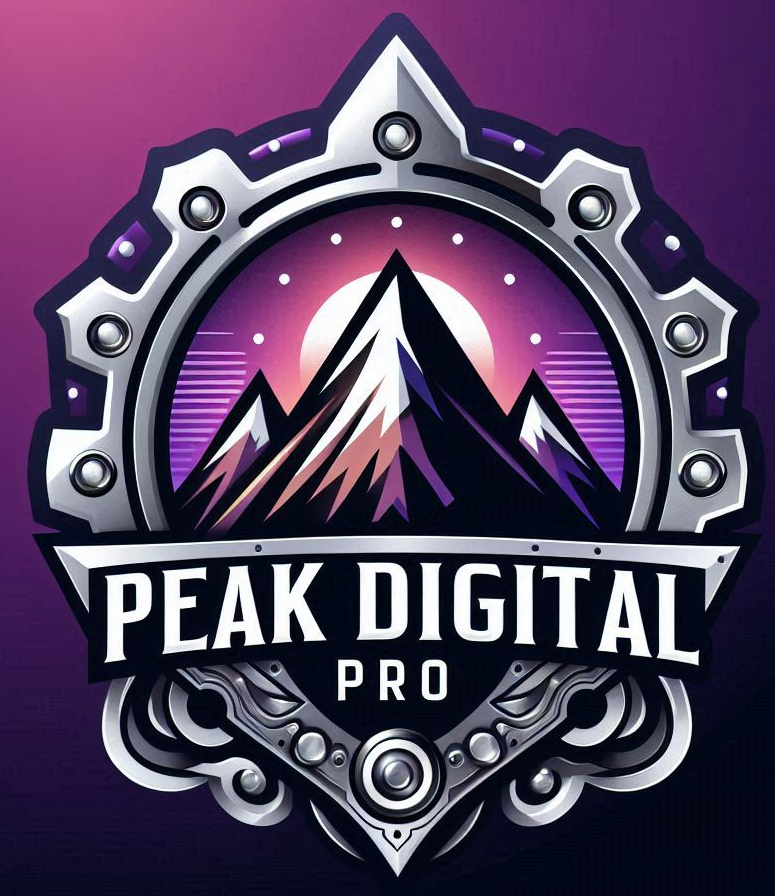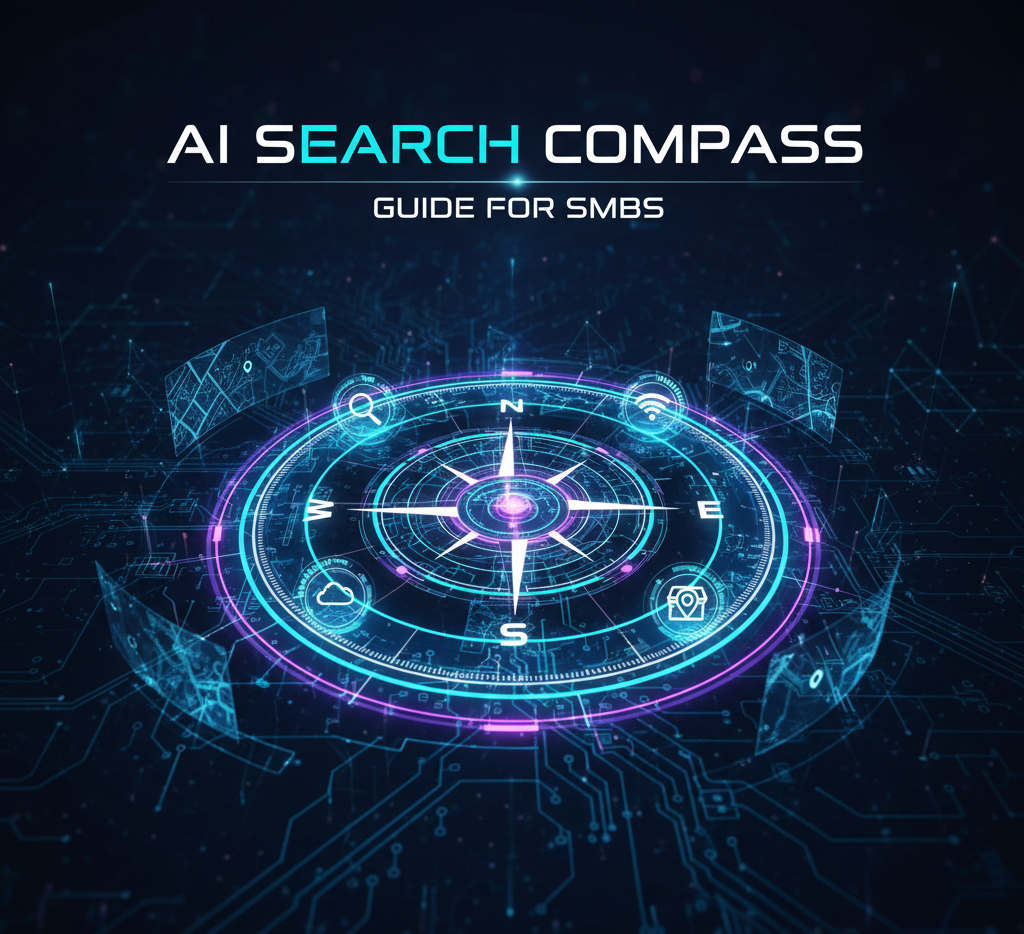7 Common SEO Challenges and How to Overcome Them
SEO keeps shaping how companies find customers online and multiply their reach. Studies show that top-ranked Google results get up to 27.6 percent of all clicks . Most people assume you need complicated tricks or endless time to rank higher. In reality, understanding a few simple SEO basics is often all it takes to put your business right in front of more buyers.
Table of Contents
- Understanding Seo Basics For Your Business
- Identifying Key Seo Challenges For Your Industry
- Creating Quality Content That Aligns With Seo Goals
- Mastering On-Page Seo: Best Practices To Follow
- Building A Strong Link Strategy To Boost Authority
- Tracking Performance And Metrics For Continuous Improvement
- Adapting To Ai Trends And Algorithm Changes
Quick Summary
| Takeaway | Explanation |
|---|---|
| Understand SEO fundamentals. | Mastering SEO involves technical optimization, high-quality content, and a good user experience. |
| Identify unique industry challenges. | Each industry has specific SEO challenges; recognizing these can enhance targeted strategies. |
| Create high-quality, user-focused content. | Content should answer user queries while integrating SEO effectively without sacrificing readability. |
| Master on-page SEO techniques. | Improve search visibility by optimizing technical aspects and content structure on each page. |
| Track performance metrics consistently. | Regularly analyze data to inform strategy adjustments and ensure SEO effectiveness over time. |
1: Understanding SEO Basics for Your Business
SEO fundamentally transforms how businesses gain online visibility and attract potential customers. At its core, search engine optimization represents a strategic approach to improving a website’s performance in digital search environments. Businesses that understand SEO basics can significantly enhance their online presence and competitive positioning.
Modern SEO goes beyond simple keyword placement. It involves a comprehensive strategy that includes technical website optimization, content quality, user experience, and strategic link building. Learn more about SEO fundamentals for businesses looking to establish a strong digital footprint.
Key SEO components every business should understand include:
-
Technical website performance : Site speed, mobile responsiveness, and secure hosting
-
Content relevance : Creating high-quality, informative content matching user search intent
-
User experience : Easy navigation, clear site structure, and engaging multimedia elements
According to research from California State University , successful SEO implementation requires a strategic blend of technical optimization and compelling content. Businesses must recognize that search engines prioritize websites offering genuine value to users.
Understanding search algorithms is crucial. Google and other search engines continuously update their ranking criteria, emphasizing user-centric metrics like engagement time, click-through rates, and content quality. This means businesses must remain adaptable and proactive in their SEO approach.
While SEO might seem complex, breaking it down into manageable strategies can help businesses of all sizes improve their online visibility. Consistent effort, strategic planning, and a commitment to providing valuable user experiences are the foundational elements of successful search engine optimization.
2: Identifying Key SEO Challenges for Your Industry
Every industry faces unique SEO challenges that require targeted strategies and nuanced approaches. Digital competition has intensified, making it critical for businesses to understand and address specific obstacles preventing online visibility and growth. Read our guide on SEO for service businesses to gain deeper insights into industry-specific optimization.
Common industry-wide SEO challenges include:
-
Content differentiation : Creating original content that stands out in saturated markets
-
Technical complexity : Managing website performance across multiple digital platforms
-
Algorithm adaptability : Keeping pace with rapidly changing search engine requirements
According to research from Chico State University , understanding your specific audience remains paramount in developing effective SEO strategies. Businesses must conduct thorough market research to identify precise audience segments and their unique search behaviors.
Industry-specific SEO challenges often revolve around niche competition and evolving digital landscapes. Healthcare providers struggle with strict content regulations, while e-commerce businesses battle duplicate content issues. Financial services must navigate complex compliance requirements that impact digital marketing approaches.
Successful SEO requires continuous learning and adaptation. Businesses need robust monitoring systems to track performance metrics, identify potential optimization opportunities, and quickly respond to emerging digital trends. Implementing comprehensive analytics and staying informed about industry-specific search trends can provide a critical competitive advantage in digital marketing strategies.
3: Creating Quality Content that Aligns with SEO Goals
Creating high-quality content represents the cornerstone of successful SEO strategies. Strategic content development goes far beyond simple keyword placement, requiring a nuanced approach that balances user engagement with search engine requirements. Explore our comprehensive guide to content writing for SEO to elevate your digital content strategy.
Key principles for developing SEO-aligned content include:
-
Relevance : Addressing specific user questions and search intent
-
Originality : Producing unique perspectives and insights
-
Depth : Providing comprehensive information that demonstrates expertise
According to research from Purdue University , successful content must authentically serve user needs while strategically incorporating search optimization techniques. High-quality content should seamlessly integrate target keywords without compromising readability or value.
Businesses must focus on creating authoritative content that establishes industry expertise. This involves thorough research, citing credible sources, and presenting information in a clear, engaging manner. Content should anticipate user questions, provide actionable insights, and demonstrate deep understanding of the subject matter.
Effective content strategies require continuous refinement. Regular performance analysis, user feedback assessment, and staying current with search algorithm updates are crucial for maintaining content relevance. Businesses must remain adaptable, willing to experiment with different content formats and approaches to maximize digital visibility and user engagement.
4: Mastering On-Page SEO: Best Practices to Follow
Mastering on-page SEO requires a strategic approach that encompasses multiple technical and content-related elements. Precise optimization can significantly improve search engine visibility and user engagement. Explore our detailed guide on on-page SEO techniques to enhance your digital strategy.
Critical on-page SEO elements businesses must prioritize include:
-
Technical structure : Optimize page load speed, mobile responsiveness, and secure hosting
-
Content optimization : Create clear, descriptive title tags and meta descriptions
-
Internal linking : Develop a strategic internal link structure that enhances user navigation
According to research from Binghamton University , effective on-page SEO demands meticulous attention to technical details. Header hierarchy plays a crucial role, with proper use of H1, H2, and subsequent header tags signaling content structure to search engines.
Businesses must focus on creating semantically rich content that provides clear signals about page relevance. This involves strategic keyword placement, using natural language that matches user search intent, and ensuring each page targets a specific topic or user query. Avoiding keyword stuffing while maintaining topical depth is essential for modern SEO success.
Successful on-page optimization requires continuous monitoring and adaptation. Regular content audits, performance analysis, and staying informed about search engine algorithm updates are critical for maintaining and improving search rankings. Businesses must view on-page SEO as an ongoing process of refinement and strategic improvement.
5: Building a Strong Link Strategy to Boost Authority
Building a robust link strategy represents a critical component of digital authority development . High-quality backlinks signal to search engines that your content is trustworthy, relevant, and valuable. Learn about our authority building techniques to accelerate your SEO performance.
Key principles for developing an effective link strategy include:
-
Quality over quantity : Focus on obtaining links from reputable, relevant websites
-
Diverse link sources : Seek backlinks from industry publications, academic resources, and authoritative domains
-
Organic link acquisition : Create compelling content that naturally attracts external links
According to research from the EDUCAUSE Center , establishing a professional online presence requires strategic link building. Domain authority emerges from consistent, high-quality content that other credible websites want to reference.
Businesses must approach link building as a holistic strategy. This involves creating exceptional content , engaging with industry thought leaders, participating in relevant online communities, and proactively seeking opportunities for meaningful external references. Guest posting, collaborative research, and providing expert commentary can generate valuable backlinks.
Successful link strategies demand continuous effort and adaptation. Regular link profile audits, monitoring competitor backlink strategies, and staying current with search engine guidelines are essential. Businesses should view link building as an ongoing process of relationship building and content excellence, not a one-time tactical effort.
6: Tracking Performance and Metrics for Continuous Improvement
Effective SEO performance tracking requires a comprehensive approach to understanding digital metrics and user behavior. Data-driven insights transform raw numbers into actionable strategies for continuous improvement. Learn more about website conversion optimization to enhance your digital performance.
Key performance metrics businesses should monitor include:
-
Organic search traffic : Measure volume and quality of search-generated visitors
-
Conversion rates : Track how effectively website traffic translates into desired actions
-
Keyword rankings : Monitor positioning for target search terms
According to research from the University of Washington , sophisticated analytics tools provide critical insights into website performance. Advanced tracking enables businesses to understand complex user interactions, revealing nuanced patterns in search behavior and content engagement.
Businesses must develop a systematic approach to metric analysis. This involves establishing baseline measurements, setting clear performance goals, and implementing regular review processes. Utilizing tools like Google Analytics 4 allows for detailed examination of user journeys, identifying potential optimization opportunities across different digital touchpoints.
Successful performance tracking is not about collecting data but transforming insights into strategic actions. Regular performance reviews, coupled with agile content and technical optimization, ensure businesses remain responsive to changing search engine algorithms and user expectations. The most effective SEO strategies emerge from a continuous cycle of measurement, analysis, and strategic refinement.
7: Adapting to AI Trends and Algorithm Changes
The digital landscape is undergoing a profound transformation driven by artificial intelligence, fundamentally reshaping search engine optimization strategies. AI-powered search demands a more sophisticated, dynamic approach to content and technical optimization. Explore our insights on navigating the AI search frontier to stay ahead of emerging trends.
Critical considerations for businesses adapting to AI search include:
-
Content relevance : Create deeply contextual, authoritative content
-
Semantic understanding : Develop content that demonstrates comprehensive topic expertise
-
Technical adaptability : Implement structured data and advanced schema markup
According to research from Colorado State University , businesses must prioritize intelligent content strategies that align with AI-driven search models. This means moving beyond traditional keyword optimization toward creating genuinely useful, comprehensive information that directly addresses user queries.
Successful adaptation requires continuous learning and proactive strategy development. Businesses must invest in understanding emerging AI technologies, monitoring algorithm changes, and developing flexible content approaches that can quickly respond to new search paradigms. The most resilient digital strategies will combine human expertise with technological agility, ensuring visibility in an increasingly complex search ecosystem.
Below is a comprehensive table summarizing the main SEO challenges and actionable solutions discussed throughout the article for business owners and marketers.
| SEO Challenge | Key Focus Area | Recommended Actions | Benefits for Businesses |
|---|---|---|---|
| Understanding SEO Basics | Technical optimization, content, user experience | Master site performance, create relevant content, ensure easy navigation | Boosts foundational visibility and trustworthiness |
| Identifying Industry-Specific Challenges | Market saturation, regulation, competition | Research audience, adapt to niche issues, monitor trends | Enables targeted, competitive, and relevant strategies |
| Creating Quality Content | Relevance, originality, depth | Address user intent, integrate keywords naturally, demonstrate expertise | Enhances authority, engagement, and rankings |
| Mastering On-Page SEO | Structure, keyword use, internal linking | Optimize headings, improve metadata, build semantic-rich pages | Improves search rankings and user interaction |
| Building a Strong Link Strategy | Authority, link diversity, organic growth | Earn high-quality backlinks, collaborate with thought leaders, audit regularly | Increases domain authority, trust, and referral traffic |
| Tracking Performance Metrics | Analytics, data-driven improvements | Use tools to monitor traffic, conversions, rankings, and user interaction | Ensures continual progress and adaptability |
| Adapting to AI Trends and Algorithm Changes | AI content, semantic optimization, flexibility | Create authoritative content, use schema markup, keep up with technology | Maintains visibility amidst fast digital and AI evolution |
Ready to Stop Losing SEO Visibility to AI Search?
If your business is facing declining organic traffic or struggles to stand out in competitive, AI-driven search environments, you are not alone. Many leaders in high-value industries feel the pressure as traditional SEO methods lose their effectiveness. You have read about the need for answer engine strategies , authority building, and technical adaptability. But the urgent reality is clear: waiting to respond puts your business at risk of being replaced in Google’s AI Overviews and platforms like ChatGPT.

Peak Digital Pro specializes in keeping growth-focused organizations like yours ahead of these changes. Our AEO Method , designed for sectors such as healthcare, finance, and e-commerce, tackles the exact challenges you face. Do not let your brand get left behind as AI transforms the search landscape. See how our solution works
and claim your competitive advantage now. Visit our site to find out how you can become the trusted answer your customers discover first.
, designed for sectors such as healthcare, finance, and e-commerce, tackles the exact challenges you face. Do not let your brand get left behind as AI transforms the search landscape. See how our solution works
and claim your competitive advantage now. Visit our site to find out how you can become the trusted answer your customers discover first.
Frequently Asked Questions
What are some common SEO challenges businesses face?
Common SEO challenges include content differentiation in saturated markets, technical complexity in website performance, and the need to adapt to rapidly changing search engine algorithms.
How can I improve my website’s technical performance for SEO?
To enhance your website’s technical performance, focus on optimizing page load speed, ensuring mobile responsiveness, and using secure hosting services.
What type of content should I create to align with SEO goals?
Create high-quality, relevant, and original content that addresses user questions and demonstrates expertise in your industry. Depth and comprehensiveness also play key roles in attracting audience engagement.
How can I track my SEO performance metrics?
Track SEO performance by monitoring key metrics such as organic search traffic, conversion rates, and keyword rankings using analytics tools like Google Analytics. Regular performance reviews are crucial for identifying optimization opportunities.







